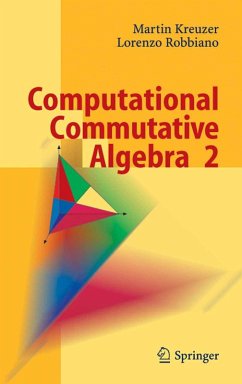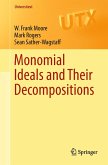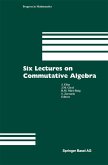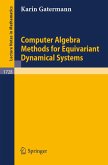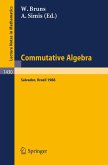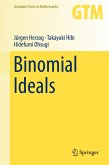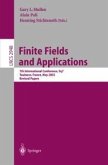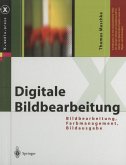Computational Commutative Algebra 2 is the natural continuation of Computational Commutative Algebra 1 with some twists, starting with the differently coloured cover graphics.
The first volume had 3 chapters, 20 sections, 44 tutorials, and some amusing quotes. Since bigger is better, this book contains 3 chapters filling almost twice as many pages, 23 sections (some as big as a whole chapter), and 55 tutorials (some as big as a whole section).
The number of jokes and quotes has increased exponentially due to the little-known fact that a good mathematical joke is better than a dozen mediocre papers.
The main part of this book is a breathtaking passeggiata through the computational domains of graded rings and modules and their Hilbert functions. Besides Gröbner bases, we encounter Hilbert bases, border bases, SAGBI bases, and even SuperG bases.
The tutorials traverse areas ranging from algebraic geometry and combinatorics to photogrammetry, magic squares, coding theory, statistics, and automatic theorem proving. Whereas in the first volume gardening and chess playing were not treated, in this volume they are.
This is a book for learning, teaching, reading, and most of all, enjoying the topic at hand. The theories it describes can be applied to anything from children's toys to oil production. If you buy it, probably one spot on your desk will be lost forever!
The first volume had 3 chapters, 20 sections, 44 tutorials, and some amusing quotes. Since bigger is better, this book contains 3 chapters filling almost twice as many pages, 23 sections (some as big as a whole chapter), and 55 tutorials (some as big as a whole section).
The number of jokes and quotes has increased exponentially due to the little-known fact that a good mathematical joke is better than a dozen mediocre papers.
The main part of this book is a breathtaking passeggiata through the computational domains of graded rings and modules and their Hilbert functions. Besides Gröbner bases, we encounter Hilbert bases, border bases, SAGBI bases, and even SuperG bases.
The tutorials traverse areas ranging from algebraic geometry and combinatorics to photogrammetry, magic squares, coding theory, statistics, and automatic theorem proving. Whereas in the first volume gardening and chess playing were not treated, in this volume they are.
This is a book for learning, teaching, reading, and most of all, enjoying the topic at hand. The theories it describes can be applied to anything from children's toys to oil production. If you buy it, probably one spot on your desk will be lost forever!
Dieser Download kann aus rechtlichen Gründen nur mit Rechnungsadresse in A, B, BG, CY, CZ, D, DK, EW, E, FIN, F, GR, HR, H, IRL, I, LT, L, LR, M, NL, PL, P, R, S, SLO, SK ausgeliefert werden.
From the reviews:
"Four years ago the authors published the first volume of a projected series about computational commutative algebra ... . Now they have gifted us with the second volume ... . In this second volume the authors continue with the same style, as the first, an almost humorous one. ... It was a pleasure to review this nice book ... ." (Paulo F. Machado, Mathematical Reviews, Issue 2006 h)
"The book under review is the second volume of the authors' 'Computational commutative algebra'. ... the book altogether covers on its 586 pages a wealth of interesting material with several unexpected applications. ... an encyclopedia on computational commutative algebra, a source for lectures on the subject as well as an inspiration for seminars. The text is recommended for all those who want to learn and enjoy an algebraic tool that becomes more and more relevant to different fields of applications." (Peter Schenzel, Zentralblatt MATH, Vol. 1090 (16), 2006)
"Four years ago the authors published the first volume of a projected series about computational commutative algebra ... . Now they have gifted us with the second volume ... . In this second volume the authors continue with the same style, as the first, an almost humorous one. ... It was a pleasure to review this nice book ... ." (Paulo F. Machado, Mathematical Reviews, Issue 2006 h)
"The book under review is the second volume of the authors' 'Computational commutative algebra'. ... the book altogether covers on its 586 pages a wealth of interesting material with several unexpected applications. ... an encyclopedia on computational commutative algebra, a source for lectures on the subject as well as an inspiration for seminars. The text is recommended for all those who want to learn and enjoy an algebraic tool that becomes more and more relevant to different fields of applications." (Peter Schenzel, Zentralblatt MATH, Vol. 1090 (16), 2006)
"[...] Die Stärke dieses zweiten Bandes der Computational Commutative Algebra liegt in den vielen Übungsaufgaben und den 55 gut ausgearbeiteten und zum Teil umfangreichen Tutorials [..]. Diese bilden eine Brücke von den theoretischen Grundlagen zu aktuellen Algirithmen und Berechnungen. Insbesondere die Tutorials sind hervorragend zum Experimentieren mit CoCoA sowie zum Selbststudium geeignet und bilden eine reichhaltige Fundgrube für Übungen und Praktika zur Computeralgebra. [...]" B.H.Matzat, Computeralgebra Rundbrief März 2006

